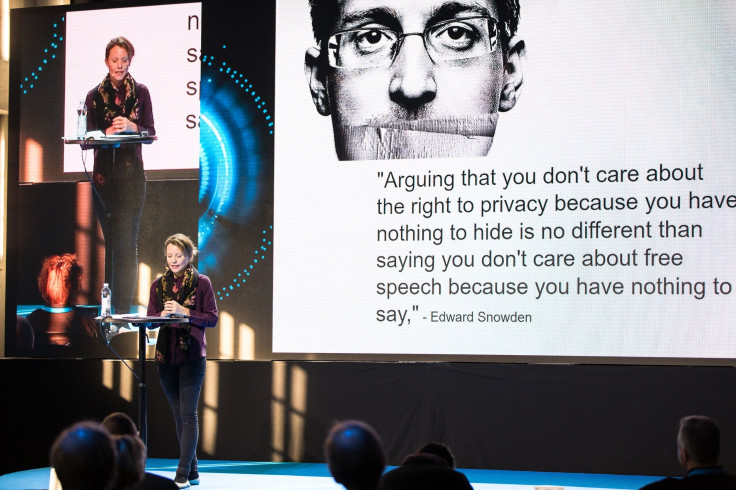Mass Surveillance Violates Privacy, But Does It Improve Security?

Helsinki, Sept. 20 — U.S. law enforcement agencies face the tough task of ensuring public safety and safeguarding the nation against terrorism, attacks on government and maintaining and protecting their intelligence methods. These challenges are complex to navigate in the current security environment, especially with privacy concerns.
Whistleblowers such as Edward Snowden and international organizations such as WikiLeaks have provided staggering disclosures showing the extent to which governments are violating citizens’ privacy, mostly without their knowledge, which raises the question: Are mass surveillance and increasing violations of our privacy justified on the pretext of ensuring national security?
Sarah Harrison a British journalist and legal researcher states that choosing between privacy and security is a false equivalency. Harrison is the acting director of the Courage Foundation and is known for her work on WikiLeaks’ legal defense and for being one of its founder Julian Assange’s close associates. She came into the limelight for accompanying the National Security Agency (NSA) whistleblower Edward Snowden from Hong Kong to Russia where he took asylum post his revelations of the agency intercepting and storing the communications of a billion people worldwide.

She spoke at the Nexterday North Antiseminar in Helsinki on Sept. 20 in a speech titled, “Practicalities of Fighting for Free Internet.”
Harrison believes that whether it be actual data or metadata detailing how the communication takes place, the onus of protecting users’ privacy lies on the companies. She gave examples wherein giving up metadata could actually lead to disastrous consequences such wrong targets being killed by drones.
"Your phone’s metadata reveals a lot about you, who you call, when and for how long. It can give people information that you wish to be private. This data can be used to make correlations, to give a greater insight into you and your life. For example, if you are calling the cops for domestic violence, this information is very important to keep private."

While that is Harrison’s opinion, former CIA director John Brennen differs in his. He stated at a conference in 2015 that surveillance helped thwart “many terrorist incidents” and disclosures such as Snowden’s made his job harder.
Bill Binney, a former cryptographer with the NSA, has an opinion which is somewhat of a middle ground between Harrison's and Brennan’s — he says that metadata alone is insufficient for targeting terrorists.
"You need to have content not just metadata to know that it is your target. Humint could point you to a bad guy; but, even then, you still need to have content to ensure that is the same guy using the phone or originating the e-mail. This is why I call the strikes by metadata alone an 'undisciplined slaughter," he told Washington’s blog in 2014.
Another pertinent issue raised at the event with regards to terrorism and data is its inefficiency. Can mass surveillance protect us from terrorism?
According to Snowden, they don’t go hand-in-hand. “If you are looking for a needle, increasing the size of the haystack doesn’t help. In fact, it hinders,” Harrison quoted him.
Farhad Manjoo of the New York Times agrees that while there is a need for surveillance, it might be strategic surveillance and not mass surveillance that is the answer. He gave the example of the Boston Bombing in which the Tsarnaev brothers were identified only with the help of the CCTV footage. Had broad surveillance not existed, the bombers may have never been identified.
Harrison further appealed to telecommunication companies present at the event and expressed why she thought that they should not collaborate with governments in mass surveillance.
“If you shouldn’t have it or there is no necessity to have it, don’t collect in the first place. Why do governments want mass surveillance? It is clear to me and others in this field that it is about control. Just as in Syria, Egypt and Turkey, our governments, also see the revolutionizing power of the internet and they don’t like it. Instead, they want to control it. If this is normalized, this is easier for them to do,” Harrison summed up, in her analysis of the current situation when it comes to mass surveillance.
It is then, for the courts to determine the extent of surveillance. A Washington, D.C., judge produced a new ruling on the subject on Wednesday, which provides a new perspective on surveillance. Chief Judge Robert E. Morin ruled that the U.S. Department of Justice (DOJ) does not have the right to rummage through the files of an anti-Trump website and has instructed the hosting service to protect the users’ identities.
The ruling illustrates that while surveillance might be necessary, limits can be imposed if it violates the first and fourth amendment rights and can be used for political persecution. Instead, the court instructed the DOJ to introduce a minimization plan, which will strategically concentrate on suspects and the government will have to name the investigators who will have access to the data, and the tools used in its collection, as well as what particularly warrants that data to be connected to the investigation.
Mass surveillance programs are neither targeted nor accurate by their very definition. Such surveillance is not directed at obtaining information about suspected individuals rather it subjects private information of a large number of individuals to government scrutiny and in that process, could even result in violating the fundamental rights of citizens as evidenced in the above case.
© Copyright IBTimes 2024. All rights reserved.











